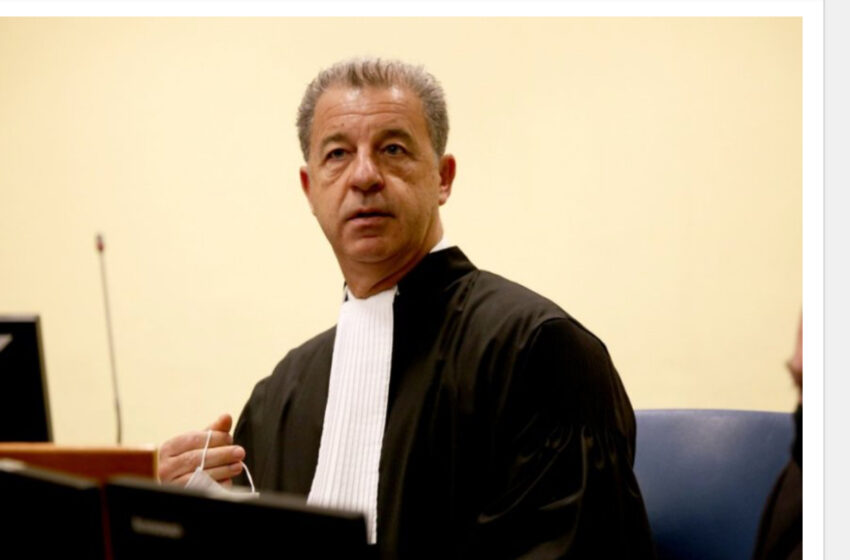Felicien Kabuga will be transferred to Rwanda, the only country that has agreed to receive him

The Office of the Prosecutor at the International Residual Mechanism for Criminal Tribunals (IRMCT) has requested that Félicien Kabuga be provisionally released and transferred to Rwanda, the only country that has agreed to receive him
The Office of the Prosecutor at the International Residual Mechanism for Criminal Tribunals (IRMCT) has requested that Félicien Kabuga be provisionally released and transferred to Rwanda, the only country that has agreed to receive him.
In 2023, the IRMCT Appeals Chamber ruled to halt Kabuga’s trial, citing his inability to participate due to health reasons. Since then, he has remained in detention in The Hague, Netherlands.
On September 9, 2025, Chief Prosecutor Serge Brammertz explained that although Kabuga has repeatedly protested his continued detention, claiming violations of his fundamental rights, the European countries he sought asylum in refused to host him.

The Prosecution noted that Kabuga “remains in limbo two years later, objecting that his detention infringes on his basic rights. The European countries he identified have rejected him, and the host state has made clear that he will not be released on its territory.”
It stressed that there should be no concerns about transferring Kabuga to Rwanda, stating that his health needs would be accommodated during the flight and that Rwanda has committed to respecting his rights and freedoms.
The Prosecution requested that the Court issue an order for Kabuga’s provisional release. Brammertz and his team further argued that any decision on Kabuga’s case should not be delayed under the pretext of confidentiality regarding his health, since much of the information is already public.
Kabuga, once a wealthy businessman in Rwanda, was among the chief financiers of the 1994 Genocide against the Tutsi. He is accused of importing large quantities of machetes that were later used in the killings.
French security forces arrested him on May 16, 2020, after 26 years on the run. In October of the same year, he was transferred to The Hague to face trial before the IRMCT.
The charges against him included genocide, complicity in genocide, direct and public incitement to commit genocide, attempt to commit genocide, conspiracy to commit genocide, extermination, and persecution.
The IRMCT has clarified that the decision to halt his trial does not amount to an acquittal, nor does it confirm his guilt.
In 2023, the IRMCT Appeals Chamber ruled to halt Kabuga’s trial, citing his inability to participate due to health reasons. Since then, he has remained in detention in The Hague, Netherlands.
On September 9, 2025, Chief Prosecutor Serge Brammertz explained that although Kabuga has repeatedly protested his continued detention, claiming violations of his fundamental rights, the European countries he sought asylum in refused to host him.

The Prosecution noted that Kabuga “remains in limbo two years later, objecting that his detention infringes on his basic rights. The European countries he identified have rejected him, and the host state has made clear that he will not be released on its territory.”
It stressed that there should be no concerns about transferring Kabuga to Rwanda, stating that his health needs would be accommodated during the flight and that Rwanda has committed to respecting his rights and freedoms.
The Prosecution requested that the Court issue an order for Kabuga’s provisional release. Brammertz and his team further argued that any decision on Kabuga’s case should not be delayed under the pretext of confidentiality regarding his health, since much of the information is already public.
Kabuga, once a wealthy businessman in Rwanda, was among the chief financiers of the 1994 Genocide against the Tutsi. He is accused of importing large quantities of machetes that were later used in the killings.
French security forces arrested him on May 16, 2020, after 26 years on the run. In October of the same year, he was transferred to The Hague to face trial before the IRMCT.
The charges against him included genocide, complicity in genocide, direct and public incitement to commit genocide, attempt to commit genocide, conspiracy to commit genocide, extermination, and persecution.
The IRMCT has clarified that the decision to halt his trial does not amount to an acquittal, nor does it confirm his guilt.
